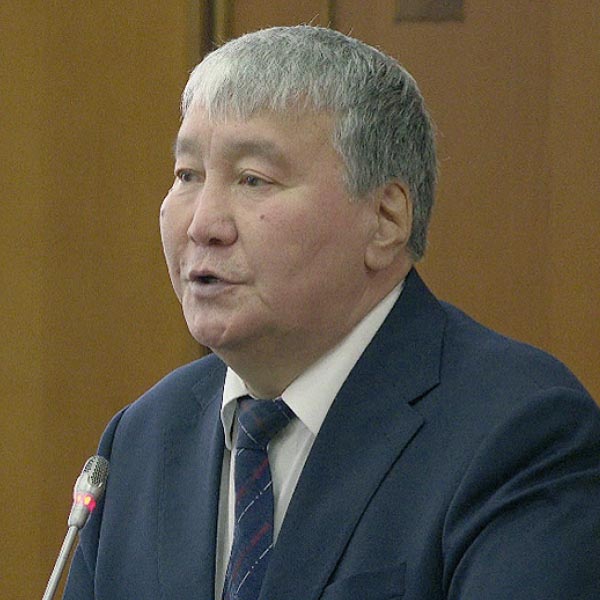The Interregional Scientific and Practical Conference “Language Policy in the Republic of Sakha (Yakutia): Preservation of Traditional Knowledge of Indigenous Peoples” was held in Yakutsk on June 19–20 under the auspices of the Russian Committee of the UNESCO Information for All Programme (IFAP).
The conference was organized by the Russian IFAP Committee, the Interregional Library Cooperation Centre, the Government of the Republic of Sakha (Yakutia), and the Northeastern Federal University (NEFU) named after Maksim Ammosov. The first day of the conference featured a plenary session with representatives of the authorities and the scientific community.
Sergey Mestnikov, Deputy Chairman of the Government of Yakutia, noted in his opening speech that the Republic is actively working to preserve and popularize the languages spoken by small indigenous peoples.
Tatiana Dovgalenko, Secretary General of the Commission of the Russian Federation for UNESCO, pointed out that the event was organized within the framework of “My Native Language” educational programme launched in 2020 by the Federal Agency for Ethnic Affairs on the initiative of the Russian IFAP Committee. She reminded that one of the project’s main objectives is to bring together the unique linguistic heritage of the multinational people of the Russian Federation. The political and humanitarian relevance of such efforts are underlined by the fact that the UN declared the 2022–2032 period the International Decade of Indigenous Languages, and UNESCO plays a key role in its implementation.
“It is gratifying that the use of digital technologies in modern linguistics remains among the main topics in Yakutia. I was very impressed by the projects that we saw here the day before. I would like to take this opportunity to reiterate that the Commission of the Russian Federation for UNESCO supports all new initiatives of the Federal Agency for Ethnic Affairs, the Russian IFAP Committee and the Government of Yakutia aimed at international recognition of Russia’s rich positive experience in the field of preservation and development of minority languages,” said Ms. Dovgalenko.
Timur Tsybikov, head of the Department of State Policy in the Field of Interethnic Relations at the Federal Agency for Ethnic Affairs, agreed with Ms. Dovgalenko. He noted that the experience of holding major scientific conferences in the Republic has been shared with the entire global community, and experts, representatives of the scientific community and language activists have played crucial role in this.

Alexander Zhirkov, First Vice Speaker of the State Assembly of Yakutia, emphasized that a sufficient regulatory framework has been created in the Republic which ensures preservation, revival and development of native languages.
“If we look specifically at our country, our Republic and the conceptual line that is being carried out, then we can single out three main pillars. These pillars are full support of the state, active involvement of public institutions, and the role of the family. If any of these three spaces narrows down, we start facing significant obstacles in this area,” said Mr. Zhirkov.
The second day of the conference featured master classes on the use of crowdsourcing platforms for speech recognition, and the use of ParaType multilingual fonts for national and official local languages of Yakutia. On the same day, the discussion platform “Popularization and preservation of Russian indigenous languages as a pressing area for the preservation of the cultural heritage of our country” took place. The UNESCO Chair at NEFU set up the “Digitalization of linguistic and cultural heritage of the indigenous peoples of the North” section moderated by the head of the chair, Ph.D. of Pedagogical Sciences Anatoly Zhozhikov. He presented a detailed report on the Arctic Council project “Digitalization of Linguistic and Cultural Heritage of the Indigenous Peoples of the Arctic.”

The section was attended by scientists from NEFU, the Institute for Humanitarian Research and North Indigenous Peoples Problems, the Museum of Music and Folklore of the Sakha Republic (Yakutia), developers of projects related to the languages of the peoples of the Sakha Republic, language activists and public figures. It featured reports on the peculiarities of creating GIS maps of indigenous peoples of the North, Siberia and the Russian Far East, the capabilities of Linguodoc platform in preservation and development of the languages of small indigenous peoples of the North (SIPN), projects implemented by translators of SIPN languages based on the usage of artificial intelligence for the Evenk language, the use of digital technologies in the preservation and development of the languages of the indigenous peoples of Yakutia in the Museum of Music and Folklore, the current status of translation of the CMS Media WiKi interface, urgent matters of preservation and popularization of traditional knowledge of the indigenous peoples of Yakutia, Sakha-Mexican project for vitalization of native languages of indigenous peoples in extracurricular activities.
The participants of the conference noted the prospects for digitalization of linguistic and cultural heritage of the indigenous peoples of the Yakutia and made a number of proposals in favor of the implementation and expansion of such projects and cooperation of all interested parties.
Source: www.iltumen.ru, www.s-vfu.ru



